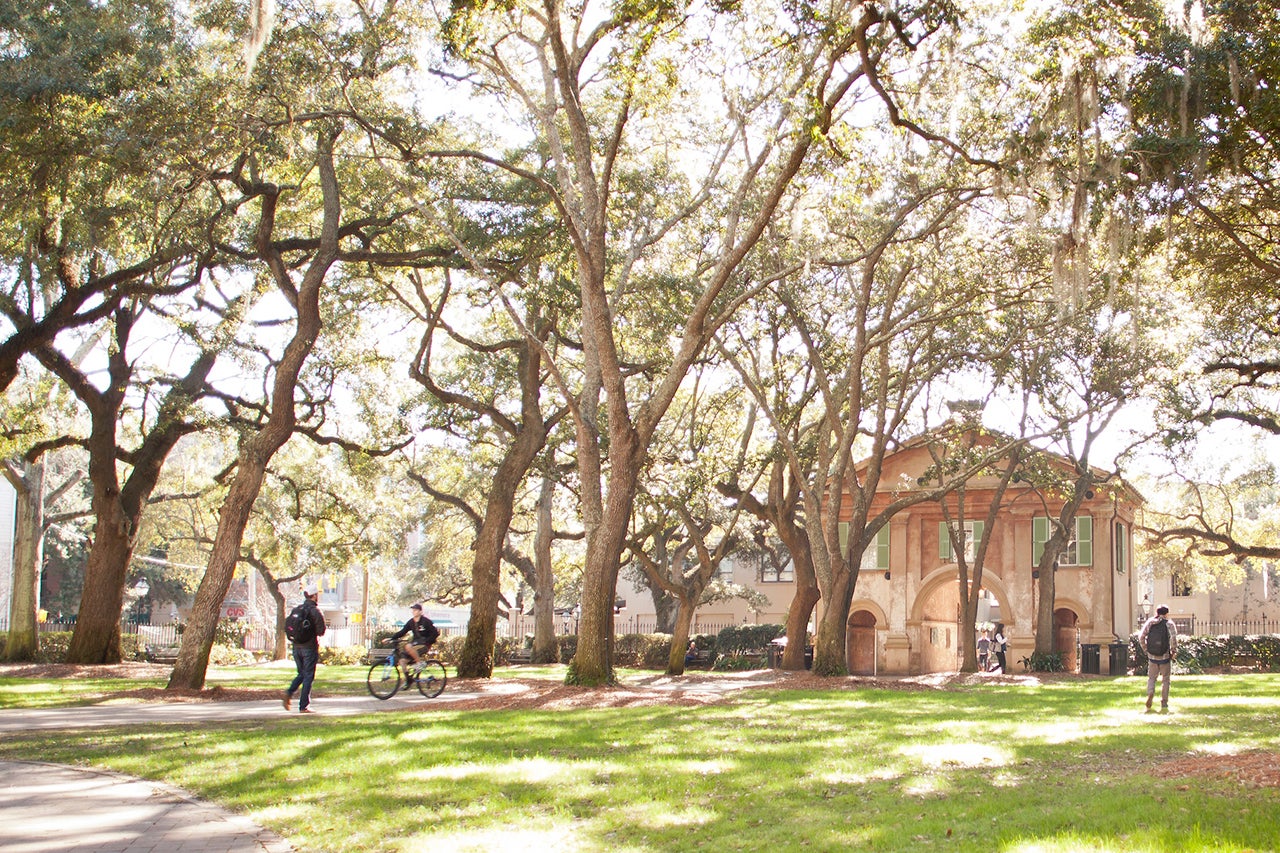Within 48 hours of releasing information about the Student Emergency Fund on March 25, 2020, the Division of Student Affairs at the College of Charleston received 521 applications from students for emergency aid.
Carl Wise, assistant professor in the Department of Hispanic Studies, estimates that most of his students work in the hospitality business, an industry that has taken a devastating hit from COVID-19.
“This pandemic affects our campus disproportionally because we are a hospitality town,” Wise says. “Students depend on these jobs to pay their bills and now most of those jobs are gone. The Student Emergency Fund was not equipped to handle the dramatic increase in applications, and we needed to get the fund up to a level that could support the students during this crisis.”
That’s why, as soon as he learned about the fund, he decided to donate. In all, more than 180 donors, including alumni, faculty and staff, have given more than $100,000 to the Student Emergency Fund in recent weeks. The effort to build up the fund is being led by the Division of Student Affairs and the Division of Institutional Advancement.
“We want to help as many students as possible,” says Jenny Fowler Peck, director of development.
And with the country largely frozen due to the coronavirus pandemic, students are facing a variety of unexpected needs.
“As we review the applications, we are seeing the great challenges many of our students are facing,” says Alicia Caudill, executive vice president for student affairs. “Many have been laid off or have lost jobs. In addition to learning remotely, these financial stressors make meeting demands for rent, utilities and medications very difficult. Many of these students rely on their families for financial support, but their families are struggling, too. These funds will make a very challenging time a little easier and allow for students to focus more on their academic work.”
The student affairs team has been working around the clock to review the applications. The primary need for students is help with rent and bills due to a loss of work (many students aren’t currently eligible for unemployment), as well as medication or school supplies now that students aren’t on campus.
Students will receive financial support in the form of monetary awards, which gives them the flexibility to direct the funds to their most critical needs. The value of funding issued is based on the specific needs of the student, but typically does not exceed $200. The awards are not loans that students are expected to repay, and every request for financial relief is reviewed on its individual merits.
Applications will be reviewed by the student affairs leadership team. Once approved, the team partners with institutional advancement for the distribution of financial support – this can be with direct funds to a student, direct funds to a third party or a gift card.
To learn more about how to donate to the Student Emergency Fund, please visit giving.cofc.edu or email Jenny Fowler Peck at [email protected]. Students may apply to receive support from the Student Emergency Fund through the Division of Student Affairs.




